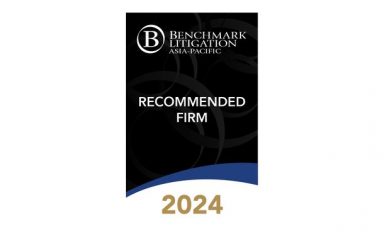Where a deceased person had executed a will, upon his death, the executor will have to apply to Court for a Grant of Probate to administer the deceased’s estate in accordance with the deceased’s wishes in the will.
All assets of monetary value form the deceased’s estate and may include properties, bank accounts, investments and other physical possessions.
The executor might take some time in collating all the assets of the estate before distribution commences. This is likely where the deceased has many assets, particularly overseas assets. While collating the assets, there might be beneficiaries who are reliant on the deceased’s assets to pay expenses and liabilities and are thus looking to receive their share of the assets as soon as possible. This article discusses whether the executor has to make an interim distribution of the estate’s assets to beneficiaries while the collation of all the assets is still in progress.
In Reznik v. Matty [2013] BCSC 1346 (“Reznik”), the Canadian Supreme Court highlighted several important principles that govern an executor’s duties:
(a) An executor has a duty to settle the affairs of the estate and to distribute in accordance with the terms of the will (at [29]);
(b) An executor must not unreasonably delay doing (a) (at [30]); and
(c) The power to retain the estate assets does not override this duty to settle the estate’s affairs and to distribute (at [31]).
When it becomes clear that the assets exceed the liabilities of the estate even before administration is complete, there is no need for the executor to wait for every asset to be collected in or every debt paid to be before distributing assets that are already clearly not needed to meet any of the estate’s debts or liabilities. Beneficiaries should receive their share of the assets as soon as practicable (GDR and another v GDL and others [2022] SGHC 30 at [37]). To unnecessarily delay distribution would contravene the Reznik principles.
Even if the executors have yet to convey an asset to the beneficiary while in the midst of administration, they may acknowledge that a specific asset is not needed for payment of debts or funeral expenses of the estate. Such an acknowledgment is described as an assent (Seah Teong Kang v Seah Yong Chwan [2015] SGCA 48 (“Seah Teong Kang”) at [25]). An assent has the effect of making the disposition of that asset under the will operative, and perfects the beneficiary’s beneficial ownership of that asset (Seah Teong Kang at [26]).
Where there is no realistic prospect that the distribution of assets can be affected by those aspects of estate administration which remain unperformed, and the remaining tasks of administration are not likely to be completed soon, then it may be the executor’s duty to make an interim distribution to that extent (Gonzales v Claridades [2003] NSWSC 508 at [47]).
To sum up the discussions above, as an executor it is important to administer the estate in a timely manner. On the other hand, a beneficiary has the ability to compel an executor to make the relevant distribution of assets if an unreasonably long time is being taken to administer the estate without good reason.



